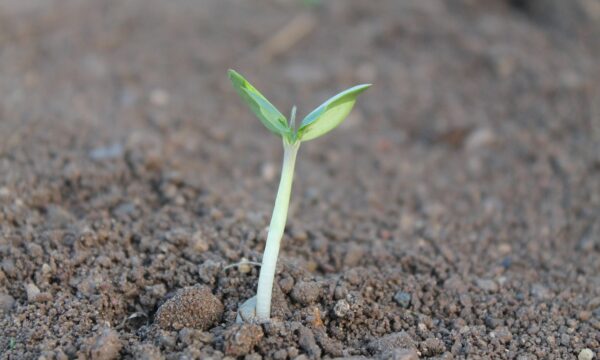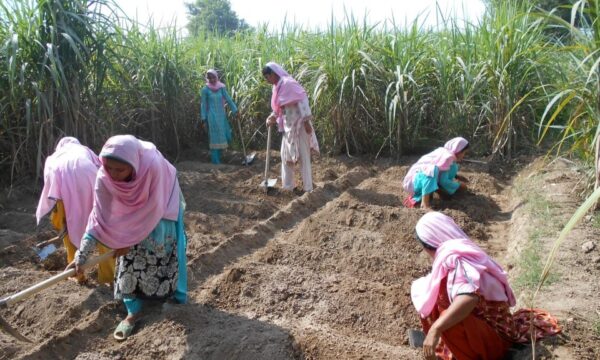Every year, Rural Women’s Day is celebrated on 15 October. It recognizes the valuable contributions that women living in rural communities make to agriculture, food security and rural development. In Pakistan, this is important. According to Relief Web, Pakistan’s total female population is over 101 million. However, around 64 million women – more than half – live in rural areas.
The World Food Programme states that, globally, if women farmers had the same access to productive resources as men, they could increase yields by 20-30%. They could increase total agricultural output by 2.5-4%, lifting 100 to 150 million people out of hunger. For the sake of reducing global hunger, rural women must be empowered in agriculture.
Rural women in Pakistan play a vital role in the well-being of their families and communities. Their work is essential to all areas of agriculture, from planting and weeding to drying and storing. However, when it comes to equality, they face significant challenges. The hurdles include limited access to education, training and income-generating opportunities. Recognizing their efforts empowers women and promotes gender equality. Ultimately, it drives sustainable progress in rural communities for a better future.
Raising awareness of challenges faced by rural women in Pakistan
On 22-24 October, the Potohar Organization for Development Advocacy (PODA) hosted the 17th Annual Rural Women’s Leadership Training Conference. It took place in Islamabad with nearly 2,300 participants from 130 districts in Pakistan in attendance. This included 1,929 women, 360 men, three transgender individuals, 15 persons with disabilities and 25 minority representatives from Christian and Hindu communities in Pakistan.

The event was entitled Empowering Rural Women through Sustainable Agriculture Innovations, Digital Entrepreneurship and Climate Action: Challenges and Opportunities. Its goal was to bring visibility to the challenges and contributions of rural women in Pakistan. PODA organizes this event annually. This year, they hosted a vibrant programme of interactive sessions.
Topics included Rights of the Girl Child, covering strategies to stop child marriages. Thematic sessions included commitments to women’s rights in political manifestos. Other discussions considered women’s rights and poverty. Display stalls were packed with useful information and lessons learnt. Attendees shared success stories on how to empower girls and women. And women entrepreneurs gave the opening and closing addresses.
CABI – supporting rural women in Pakistan
At the event, CABI co-sponsored a technical and advocacy session. During the panel discussion, Sajila Khan, CABI’s Gender Coordinator-Asia, and session Co-chair, discussed Gender Inclusivity in Agriculture Extension Services. She highlighted CABI’s work supporting rural women farmers and the organization’s commitment to gender inclusivity in agriculture.

She explained that CABI works to empower female farmers by fostering leadership skills. Women are encouraged to take on roles as community leaders, which creates a ripple effect throughout their communities. Moreover, she stressed the importance of changing societal perceptions about women’s contributions to agriculture. She advocated for recognition of women’s work, and she called for policies that support gender equality.
Khan drew attention to the CABI-led PlantwisePlus programme. She described the plant clinic system in Pakistan, which supports smallholder farmers with a focus on women farmers. One such clinic was set up at the conference. Participants were able to meet plant doctors to discuss plant health issues firsthand.

PlantwisePlus – helping women farmers address plant health threats
Dr Naeem Aslam, CABI’s Country Coordinator for PlantwisePlus, further discussed the programme in his talk. Over 1,000 plant clinics involve female district workers. PlantwisePlus’ primary mission is to assist small-scale farmers in managing agricultural challenges. This includes crop protection and plant pest control. To support this, CABI has developed the PlantwisePlus Knowledge Bank. This digital tool provides agricultural know-how to its users. It also includes resources like a plant health toolkit.
Dr. Aslam talked about the three PlantwisePlus pathways: pest preparedness, pesticide risk reduction and farmer advisory services. He also shared the programme’s vision to empower women smallholders. He emphasized PlantwisePlus’ approach to supporting countries by predicting, preventing and preparing for plant health threats amidst climate change. This empowers farmers to reduce crop losses and produce safer food while safeguarding human health and the environment. The programme aims to reach 2 million female smallholders by 2030. This will enable them to produce more food through safer and more sustainable practices. In turn, this will boost food security and rural livelihoods.

Extension handbook helps mainstream gender in Pakistan
Earlier in 2024, PlantwisePlus published a gender handbook for agricultural extension advisors in Pakistan. The handbook is a comprehensive document of extension tools for gender equality. It covers methodologies for training and trends in gender mainstreaming. It aims to successfully implement gender initiatives and interventions using a logical and practical framework.
This innovative resource provides agricultural extension agents with gender sensitivity tools, promoting equality, diversity, and inclusion in farming practices. Practical tools include a Rural Women’s Daily Activity Profile and Seasonal Calendar templates. Download the handbook here.
Improving the lives and livelihoods of rural women in Pakistan
Rural Women’s Day shines a spotlight on the potential that rural women can bring to agriculture and community development in Pakistan. Empowering women through initiatives like PlantwisePlus supports equality, progress and sustainability. Recognizing women’s role is key to creating resilient rural communities and a brighter future.
Learn more about PlantwisePlus in Pakistan here.
🎥 Watch our video on the role of rural women in Pakistan.
Find out more
Women farmers in Pakistan aren’t realising their potential – here’s why
Overcoming gender barriers to tomato farming in Pakistan
“Through the gender lens, invisible women farmers can finally be seen”
Project report: Gender and Rural Advisory Services Assessment in Pakistan
PlantwisePlus gratefully acknowledges the financial support of the Directorate-General for International Cooperation (DGIS), Netherlands; European Commission Directorate General for International Partnerships (INTPA, EU); the Foreign, Commonwealth & Development Office (FCDO), United Kingdom; the Swiss Agency for Development and Cooperation (SDC); and the Australian Centre for International Agricultural Research (ACIAR).
All images courtesy of Sajila Khan for CABI.
Related News & Blogs
Training Sri Lanka’s agro-dealers in pesticide risk reduction
Agro-dealers provide vital support to Sri Lanka’s farmers. These agricultural input suppliers are often the first point of contact for smallholders who need advice on plant protection products. However, agro-dealers often lack formal training in safer…
3 July 2025




